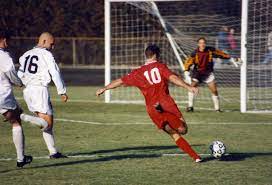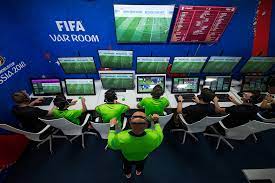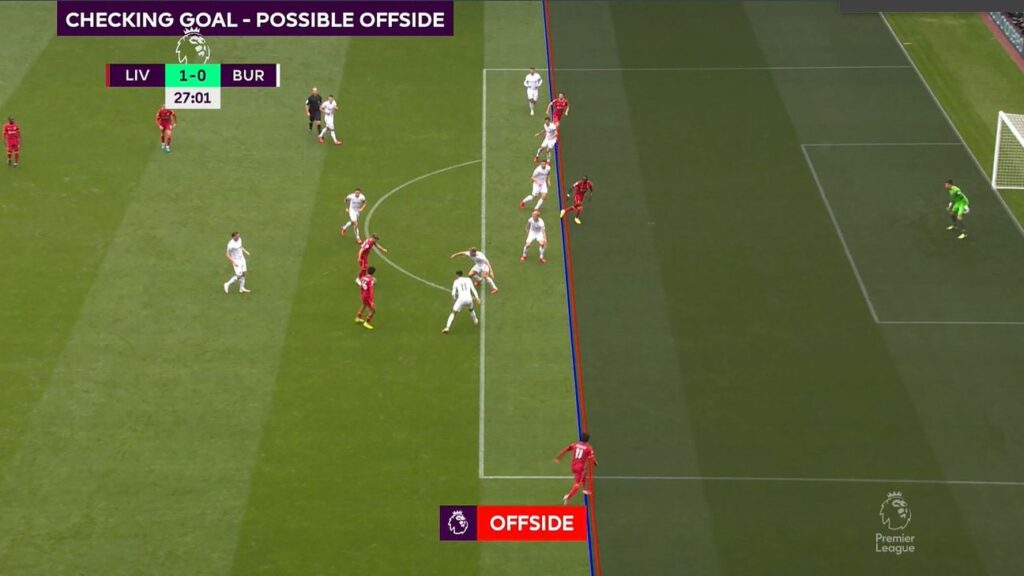Intro
Digital innovations have been helping humans reach heights that we never could’ve thought of, with digital innovation really taking off in the late 1970s, when computer-aided design and manufacturing were first used in businesses. Since then, we have been using this throughout many aspects of human life, including sports, and more specifically soccer. Digital innovation has definitely has had its impact into the beautiful game, with the addition of new highly developed digital cameras. This innovation has allowed us to have a better view of how the game is played, but most importantly, give us a better advantage in the referee-ring aspect of the game. Let’s dive deeper into how digital innovation has changed this aspect of the game.

History
Soccer, also known as football, is a sport with a history of over 2,000 years. However, the history of modern soccer dates back to England in the mid-19th century, when various forms of soccer were played. The sport quickly spread throughout the British Empire and Europe, where it was adopted and modified in many countries. In 1904, the Federation of International Football Associations (FIFA) was created to provide standardized rules for the game and organize international competitions such as the World Cup, UEFA European Championship and the UEFA Champions League. The sport is regulated by FIFA and organized by various national and regional associations such as the English Football Association and the Union of European Football Associations (UEFA).
Today, soccer is the most popular sport in the world, with billions of fans and participants in over 200 countries. The sport continues to evolve, and new technologies, such as video assistant referees (VAR), are being introduced to improve the accuracy of decisions and maintain the integrity of the game.
VAR
VAR, or also known as Video Assistant Referee, is a system that uses video replays to assist the on-field referees with decision making. VAR was invented in 2010, but first used in 2018/2019. With this, referees are able to “freeze time” and go back to either make a decision based on something the didn’t see, to correct an already made decision, or to get a better look before making the correct decision. Before this, referees had to make verdicts based on what they saw, in real time. Soccer can be a very fast sport at times, so referees have to make quick rulings, which can lead to error a lot. With the addition of digital innovation with cameras, we are able to go back in time and see different angles/viewpoints that can either justify or alter the referees decisions.
VAR has been in great controversy ever since it has been implemented into the game, due to it being used improperly and referees making the wrong decision even after using it. However, “the use of VAR is helpful in reducing critical errors and improving refereeing accuracy in complex and dynamic football match situations. For example, FIFA (2018) revealed that in the 2018 Men’s World Cup, the accuracy rate of refereeing decisions was 95.60% when VAR was not employed and 99.35% when VAR was used. Additionally, in a study of 13 men’s national leagues, using VAR was found to increase refereeing decision accuracy from 92.1 to 98.3%.”
Something else that really helps out is the addition of the new Hawk-Eye’s virtual offside line technology. Before, offsides in soccer would be determined by on-field referees. They make the offside ruling based on their observation of the position of the attacking player relative to the ball and the second-to-last defender (usually the last defender is the goalkeeper). If the attacking player is closer to the opponent’s goal line than both the ball and the second-to-last defender, they are in an offside position and cannot touch the ball or interfere with play. This can happen extremely fast, due to players running at full pace, and trust me, some players are too fast. Without the use of cameras and VAR, referees could make mistakes that could alter the game greatly. However, with the addition of this new technology, making these decisions just got a whole lot easier.
Many like myself like the addition of this innovation to the sport, due to making the game more fair, as it should be. However, many tend to think that VAR should stay out of the sport. Lots of people begin to question why even have on-field referees anymore if every decision made has to go under review, which has been a recent trend of events in modern day soccer. Either way, this innovation has really changed the ruling aspect of the game, and has made the game more debatable than ever.


Conclusion
In conclusion, digital innovation has really changed the way the sport of soccer is played. Before, whatever decisions were made, they were never able to be reviewed, challenged, or altered. Now, the game can be stopped for long periods of time just to evaluate actions and technicalities that occur. For me, even though I like the addition of this innovation, it has taken some of the beauty out of the game. This sport is supposed to be a continuous sport, one that doesn’t have many stoppages. Ever since VAR has been implemented, we have seen an increase in these stoppages for long periods of time, sometimes to make obvious decisions. However, it has provided the game with more fairness than it has ever had in its history;.